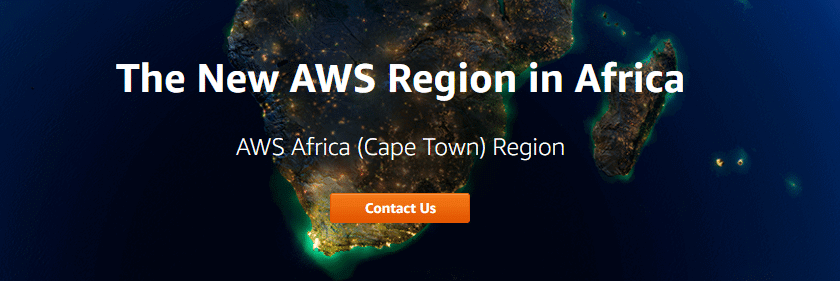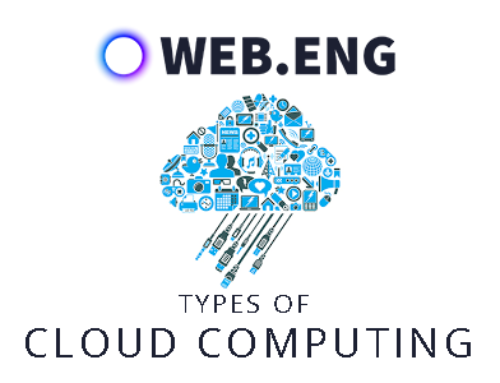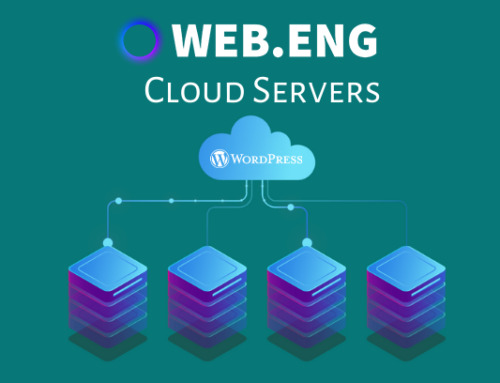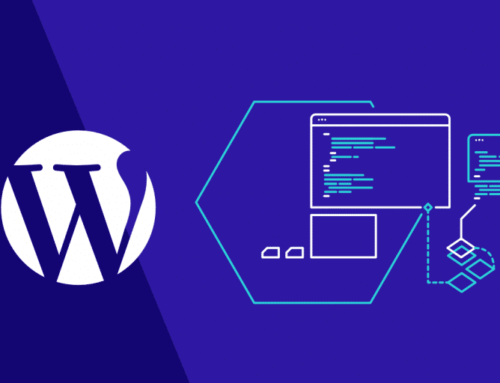In April 2020, AWS announced the opening of its data centre region in Cape Town. The official region’s name is Africa (Cape Town) and the API identifier is af-south-1. The region contains 3 availability zones in af-south-1a, af-south-1b and af-south-1c. Web.Eng has taken full advantage of this event to migrate and deploy our South African clients’ WordPress websites in the Africa region.
In this post, we will discuss the following topics:
Why is the new AWS Data Center important for South Africa?
- Laws of Physics
- Laws of Geographical Regulation
- How the AWS Cape Town data center directly affects South African businesses
- Instances and Services
- A Growing Presence in Africa
The Future of Technology in Africa
- What are some of the use cases for low latency?
- What advantages are there for geographically closer data centers?
- What are South African companies and developers able to do with the local data centre region?
First off, let’s discuss the geographic meaning of Amazon’s Regions and Availability Zones.
What are Regions?
The concept of an AWS Region is a physical location around the world where data centers are clustered. Each group of logical data centers are called Availability Zones. Each AWS Region consists of multiple, isolated, and physically separate AZ’s within a geographic area. Each AZ has independent power, cooling, and physical security and is connected via redundant, ultra-low-latency networks. AWS has built their infrastructure Regions to meet the highest levels of security, compliance, and data protection. Web.Eng has planned the deployment of our client applications in South Africa 18 months before the new region launched in April 2020. We were thus incredibly excited to jump on the bandwagon to host our WordPress websites on AWS, right here in sunny South Africa.
At the time of writing, the Global AWS Infrastructure is spread across the globe to reach almost any customer.

What are Availability Zones?
An AWS Availability Zone (AZ) is one or more discrete data centers with redundant power, networking, and connectivity in an AWS Region. The AZ’s within the Africa region gives Web.Eng the ability to operate production WordPress websites that are more highly available, fault tolerant, and scalable than would be possible from a single data center. The AZ in Cape Town is interconnected with high-bandwidth, low-latency networking, over fully redundant, dedicated metro fiber providing high-throughput, low-latency networking between AZ’s. A good point to note is that all traffic between AZ’s is encrypted. The network performance is sufficient to accomplish synchronous replication between AZ’s. AZ’s make partitioning applications for high availability easy. If an application is partitioned across AZ’s, companies are better isolated and protected from issues such as power outages, lightning strikes, floods, earthquakes, and more. AZ’s are physically separated by a meaningful distance, many kilometers, from any other AZ, although all are within 100 km of each other.
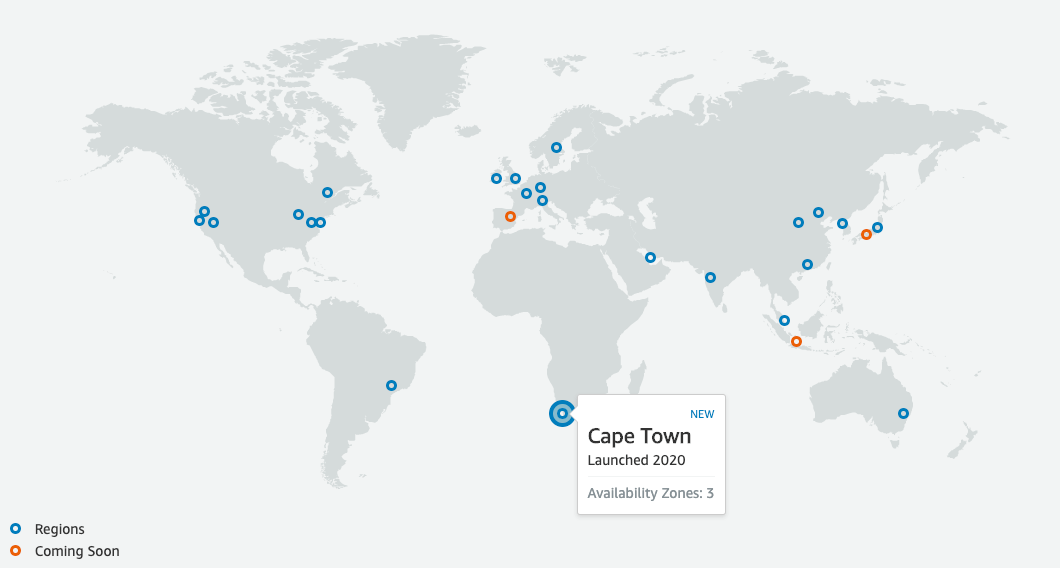
Why is the new AWS Data Center important for South Africa?
The short and sweet answer is: To be close to customers and to meet geographical regulation laws, which give the following benefits:
1. Laws of Physics
Low latency makes the internet go round. Latency is the delay between a user’s action and a web application’s response to that action, often referred to in networking terms as the total round trip time it takes for a data packet to travel. In today’s internet age, the importance of website speed comes down to milliseconds and can be worth millions in gained or lost profits.
By offering the three Availability Zones in South Africa, connected through low-latency links, customers can easily deploy high availability applications with even lower latency to their customers and end-users and keep their data inside their AWS Region.
2. Laws of Geographical Regulation
With the new region, customers with data residency requirements, and those looking to comply with the Protection of Personal Information Act (POPIA), can now store their content in South Africa with the assurance that they retain complete ownership of their data and it will not move unless they choose to move it.
This will mitigate the data privacy headache faced by many companies as the effective enforcement of POPIA draws nearer, allowing them to store their data in the cloud using the AWS Cape Town region.
Many enterprises are faced with the challenge to keep their customer data safe under the POPIA act, as well as regulations and compliance to keep data and information geographically bound within the borders of South Africa. With the new data center in Cape Town, Web.Eng helps South African customers meet compliance & regulation laws to store information in South Africa, allowing customers to meet this standard while still using the AWS infrastructure that meets the highest levels of security, compliance, and data protection.
How the AWS Cape Town data center directly affects South African businesses
With the 2 main benefits discussed above, we can look at further abstract reasons why the AWS data center in Cape Town provides further competitive advantages to the Southern African cloud computing market:
The addition of the AWS infrastructure region means developers, enterprises, start-ups, Non-Governmental Organisations (NGOs), education institutions, and governments can leverage the benefits of AWS to start their own businesses, drive innovation, build new products and services, and help citizens across Africa.
In simple terms, the world’s most popular website platform can now be infinitely scaled for essentially unlimited visitors doing an unlimited number of things on your website or application.
Using AWS and investing in AWS training brings an understanding of the capabilities to innovate with their respective services to improve our service offering to our customers. 4 very simple examples out of a possible 175+ services are:
- Using AWS SES to send not only transactional website emails, but also other marketing and promotional emails that are tightly integrated with the content types stored in the WordPress Website database.
- Using AWS SNS to verify users via OTP over email or SMS text. SNS can also be used to send promotional and marketing text messages to the user devices with a few clicks
- With Amazon Polly, Web.Eng can provide our clients’ website visitors to their WordPress website audio recordings of the content. Audio files are created and embedded in any of the voices and languages supported by Amazon Polly. Visitors can stream the audio at their convenience using inline audio players and mobile applications.
- Leverage Cloudformation to deploy fault tolerant and scalable WordPress infrastructures
Moreover, working with an AWS partner will not only guide clients on the right path to digital transformation, it will also pave the way for better optimised solution architecture from a cost and performance perspective. AWS Partners like Web.Eng take our knowledge gained across the span of working with all clients, and eliminate the need for clients to invest time and money in their own education of mammoth platforms like AWS.
The new data centre will enable developers, start-ups and enterprises, as well as government, education and non-profit organisations, to run their applications and serve end-users in Africa, with lower latency and leverage advanced AWS technologies to drive innovation.
With the local launch, AWS now spans 73 Availability Zones within 23 geographic regions around the world, and has announced plans for 12 more across four more AWS regions in Indonesia, Italy, Japan and Spain. The impact of AWS opening a data centre region in South Africa and why local enterprises and other cloud users are increasingly looking to make use of local hyperscalers.
Instances and Services
Amazon Web Service’s Region and Services Page details all the available services offered through each region around the world.
Below is a list of all the services offered by the AWS Cape Town region at the time of writing.
| Cape Town Region – Services Offered | ||
| Amazon API Gateway | Amazon Aurora | Amazon CloudWatch |
| Amazon DynamoDB | Amazon ECR | Amazon ECS |
| Amazon ElastiCache | Amazon EBS | Amazon EC2 |
| Amazon Elastic MapReduce | Amazon Elasticsearch Service | Amazon Glacier |
| Amazon Kinesis Video Streams | Amazon Redshift | Amazon Route 53 Private DNS |
| Amazon SNS | Amazon SQS | Amazon S3 |
| Amazon SWF | AWS Artifact | AWS Auto Scaling |
| AWS Certificate Manager | AWS CloudFormation | AWS CloudTrail |
| AWS CodeDeploy | AWS Config | AWS Database Migration Service |
| AWS Direct Connect | AWS Elastic Beanstalk | AWS Key Management Service |
| AWS Marketplace | AWS Personal Health Dashboard | AWS Server Migration Service |
| AWS Shield Standard | AWS Step Functions | AWS Support |
| AWS Systems Manager | AWS Trusted Advisor | AWS X-Ray |
| Elastic Load Balancing | VM Import/Export | |
Why host WordPress on AWS?
WordPress is an open-source blogging tool and content management system (CMS) based on PHP and MySQL that is used to power anything from personal blogs to high traffic websites. When the first version of WordPress was released in 2003, it was not built with modern elastic and scalable cloud-based infrastructures in mind. Through the work of the WordPress community and the release of various WordPress modules, the capabilities of this CMS solution are constantly expanding. Today, it is possible to build a WordPress architecture that takes advantage of many of the benefits of the AWS Cloud.
The main reasons to host WordPress in the AWS cloud is:
- Improving Performance and Cost Efficiency
- Elastic Deployment
What Web.Eng uses the following AWS services to deploy WordPress Applications:
- Elastic Compute Cloud (EC2): the powerhouse of the application.
- Elastic Load Balancer (ELB): for ensuring high availability and selecting the best performance between multiple servers across multiple availability zones
- Relational Database Service (RDS): to run the WordPress SQL database
- Elastic File Share (EFS): to store dynamic core files (WP Core, PHP files)
- Route 53 DNS: for domain traffic routing
- Cloudfront CDN: to distribute content globally to datacenters nearest to the request
- S3: for static file storage (images, JS, CSS)
- Cloudwatch: for application and systems monitoring
- Amazon Machine Image (AMI): for automatic infrastructure deployment
AWS presents many architecture options for running WordPress. The simplest option is a single server installation for low traffic websites. For more advanced websites, Web.Eng has created an offering, adding several other options, each one representing an incremental improvement in terms of availability and scalability for enterprises looking to run WordPress at scale. Web.Eng carefully considers the use case of the client and selects the features that most closely match their requirements and their budget.
A Growing Presence in Africa
This new Region is a continuation of the AWS investment in Africa. In 2004, Amazon opened a Development Center in Cape Town that focuses on building pioneering networking technologies, next generation software for customer support, and the technology behind Amazon Elastic Compute Cloud (EC2). AWS has also added a number of teams including account managers, customer service reps, partner managers, solutions architects, developer advocates, and more, helping customers of all sizes as they move to the cloud.
In 2015, we continued our expansion, opening an office in Johannesburg, and in 2017 we brought the Amazon Global Network to Africa through AWS Direct Connect. In 2018 we launched infrastructure on the African continent introducing Amazon CloudFront to South Africa, with two edge locations in Cape Town and Johannesburg, and recently in Nairobi, Kenya. We also support the growth of technology education with AWS Academy and AWS Educate, and continue to support the growth of new businesses through AWS Activate. The addition of the AWS Region in South Africa helps builders in organisations of all sizes, from startups to enterprises, as well as educational institutions, NGOs, and the public sector across Africa, to innovate and grow.
The new Region is open to all: existing AWS customers, partners, and new African customers working with local partners across the region. If you are planning to deploy workloads on the Africa (Cape Town) Region, don’t hesitate to contact us.
The Future of Technology in Africa
The opening of the AWS data centre in Cape Town came amid a hive of activity in SA’s cloud computing space. Last year saw US-based software giant Microsoft open two data centre regions in SA, becoming the first global provider to deliver cloud services from data centres on the African continent.
In March last year, Chinese telecommunications giant Huawei started offering its cloud services in SA.
US-based enterprise software company Oracle in September last year also announced plans to launch data centres in SA.
For the tech-lovers, these events are exciting for the development of the technology capabilities across Africa, finally giving technical personnel the ability to drive change at scale with the backing of platforms like AWS. This idea is also expanded from the 80 year prediction that the population in Africa will rise by 3 billion,resulting in the center of gravity of the world market will move from Atlantic domination to Indian domination over the next 20 years. These statistics are deduced form Hans Rosling’s Factfulness. For local entrepreneurs this basically means Africa is a tech goldmine waiting to be discovered.
Conclusion
Web.Eng is super excited to be in the stream of the AWS cloud computing space, and even more so to host WordPress and provide scalable, reliable and highly available solutions to the Southern African market.
